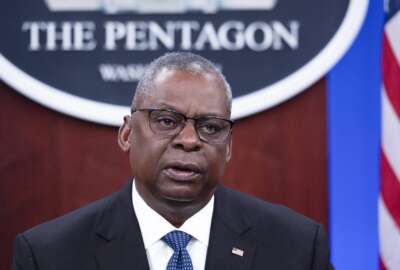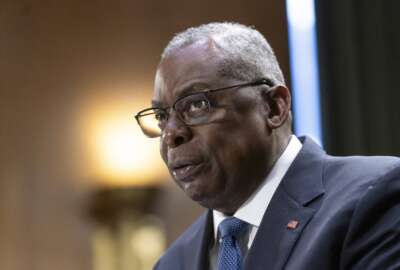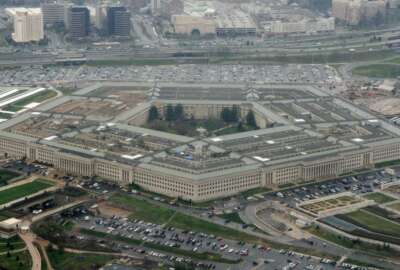To career feds, the disappearing SecDef is just plain weird
Defense Secretary Lloyd Austin's hidden surgery and hospitalization set a bad example on several levels
To football fans who follow the travails of football coaches, this week has brought lots of news. For instance, the University of Alabama’s Nick Saban’s sudden retirement after a storied career prompted many expressions of surprise. The departure of equally-storied Bill Belichick from the New England Patriots shows even supernovas have lifecycles.
One thing about coaches: They’re always present at the sidelines, supervising the play callers and managing the player rotations.
Can you imagine a coach disappearing in the midst of a crucial game, and neither the athletic director nor the players know who’s in charge? Imagine if you or I took days or a week of sick leave and didn’t tell anyone? We’d have hell to pay.
It’s right there in black-and-white from OPM: “An employee must request sick leave within such time limits as the agency may require.”
Thus the inexplicable chain of events at the Defense Department puzzle the national security establishment and set the political media aflame. It’s ballooned into a huge hairball, which the DoD Office of Inspector General says it will investigate.
Let’s say, because of the sudden discovery of prostate cancer, Austin had to be rushed to the hospital and put under anesthesia then and there. That doesn’t explain the cone of silence that descended.
In his public appearances, Defense Secretary Lloyd Austin doesn’t come across as a football coach type. Not qualified in remote psychoanalysis, I presume he is a strong leader if only because wallflowers don’t become Army Rangers, make it to Command and General Staff College and later run CENTCOM. And you don’t get there by being careless about details, especially really big details.
But, holy cow, what could possibly explain why so many team members, to say nothing of President Biden, knew nothing about the SecDef having major surgery then returning to the hospital after complications?
We now know that Deputy Secretary Kathleen Hicks was away at the beach in Puerto Rico. His chief of staff was sick with flu. Politico reported the White House was “dismayed,” apparently as much from the President’s not knowing as from the hit to the administration’s self-perception as “drama-free.” What followed is actually typical of Washington drama, the sort of non-entertainment that entertains those in the political stratosphere, or who wish they were. Every administration is full of drama, so what’s the use of trying to pretend otherwise?
Austin came up through the ranks after graduating from West Point. In that sense, he, more than any of the primarily political types that populate administrations, knows the criticality of observing the protocols in crucial situations. In Pentagon leadership, down to the level of under secretary for this-and-that, people must file a letter to designate authority for even a single day off.
Ezra Cohen of the Hudson Institute, a former Pentagon official who was twice an acting undersecretary, said in an interview, “This is something that is quite routine, something I personally had to do when I just had to take a day off for personal reasons.”
Since the letter would presumably come from the secretary to the deputy secretary, how is it that Hicks was reportedly unaware? Someone had to draft the letter, type it, sign it and email or deliver it. The secretary’s office has lots of minions, so you wonder if half the Pentagon actually knew what was going on, even if the senior White House staff didn’t. For that matter, you can imagine Chinese moles monitoring the comings and goings at the gates of Walter Reed in Bethesda.
Another former under secretary, Tara Sonenshine, writing in The Hill, said the incident calls into question the system consisting of “the notification process surrounding Austin’s hospitalization, which relates to defense orders, chain of command, and military authority.”
But the incident goes beyond just confusion and carelessness about protocols. It potentially endangers national security. As Cohen noted, foreign adversaries watch these things. If they sense no one’s in charge, or no one knows who’s in charge, one of them could decide to pounce.
“That ability for the President to convey clear orders and instructions via the secretary of Defense, through military forces is really at the core of our deterrence ability and our ability to deter our adversaries,” Cohen said. “So when that chain is muddled, or even if there’s a perception that it’s undermined, it could be very inviting to our adversaries.”
Finally, the secretiveness, to be uncharitable, or inattentiveness, to be charitable, sets a bad example. The power of senior leadership comes with crucial limits. You can’t indulge in throwaway lines or careless behaviors. Hardly a new lesson, yet it never quite sinks in.
Nearly Useless Factoid
The longest tenured NFL head coaches were Curly Lambeau of the Green Bay Packers and Tom Landry of the Dallas Cowboys, each coached 29 seasons.
Source: ESPN
Copyright © 2025 Federal News Network. All rights reserved. This website is not intended for users located within the European Economic Area.
Tom Temin is host of the Federal Drive and has been providing insight on federal technology and management issues for more than 30 years.
Follow @tteminWFED






